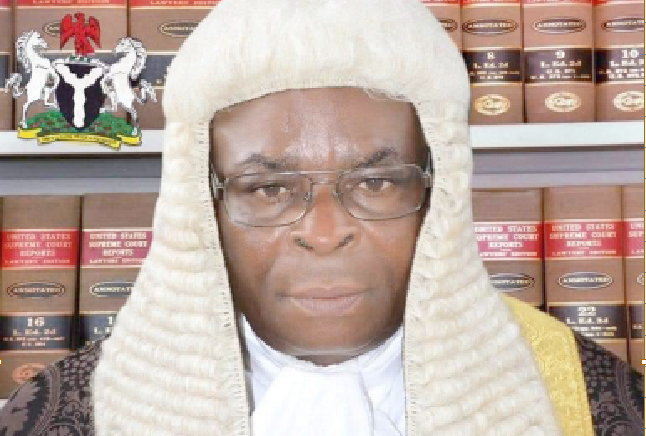An Abuja-based human rights lawyer, Hamid Ajibola Jimoh, has submitted that the action of President Muhammadu Buhari in suspending the Chief Justice of Nigeria (CJN), Justice Walter Onnoghen was valid, legal and constitutional.
The lawyer was reacting to the President’s suspension of Justice Onnoghen and his replacement with the second most senior justice of the Supreme Court, Justice Tanko Mohammed on Friday.
Jimoh said Section 318(4) of the Nigerian Constitution empowers the President to appoint the CJN subject to confirmation by the Senate, adding that the section also gives him power to remove the CJN based on the Interpretation Act, which is silent on recourse to the National Judicial Council (NJC).
“Also, it is important to know that by the provisions of Section 11 of the Interpretation Act, 2004, the President who appointed the CJN has been empowered and conferred the power to suspend the CJN and such suspension is also constitutional under Section 318 (4) of the Constitution.
“More so, the Constitution in sections 292 and 157 only provide for the removal of the CJN and not suspension, whose power is pursuant to Section 318(4) of the Constitution and Section 11 of the Interpretation Act, 2004, conferred on the President, even without the need for any Order of any Court to utilize his discretion,” he said.
Jimoh however argued that in the present circumstance, the CJN was removed by the Code of Conduct Tribunal (CCT) based on an ex parte application, and the President gave effect to that order to avoid disobedience of court.
“There is nothing on the order of the CCT that directed the President to suspend the CJN, rather, the CCT had by itself ordered His Lordship’s suspension which takes effect with immediate effect and disobedience of which shall be deemed as a contempt of the CCT,” he added.

 Join Daily Trust WhatsApp Community For Quick Access To News and Happenings Around You.
Join Daily Trust WhatsApp Community For Quick Access To News and Happenings Around You.


